Archaeology, Paradigms, Science
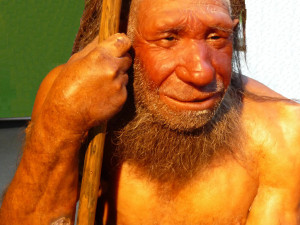
“A dental study of 1,200 molars and premolars from 13 hominin species shows that no known species matches the expected profile of the last common ancestor of Homo neanderthalensis and anatomically modern Homo sapiens. The study, published online in the Proceedings of the National Academy of Sciences, also provides evidence that the lines that led to Neanderthals and modern humans […]
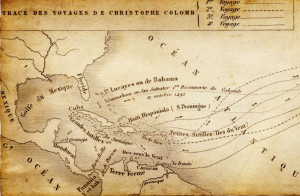
“Although Christopher Columbus is associated with discovering America, the 15th century explorer actually first set foot upon modern day Haiti and the Dominican Republic. But people were inhabiting both North and South America for thousands of years before Columbus sailed the ocean blue. Historians commonly believe that humans first crossed to the Americans from Asia […]
Genesis Quest, Paradigms, Science

Understanding Paradigms and the Birth of Uniformity and Scientific Materialism The term Paradigm was popularized by Thomas Kuhn in his groundbreaking book “The Structure of Scientific Revolutions” in regards to the Sciences, in that Science as an institution, born out of and comprised of social agents in a social world is not, and cannot be outside of, […]
"Philosophy of Science", "Science as Paradigm", Darwin, Lyell
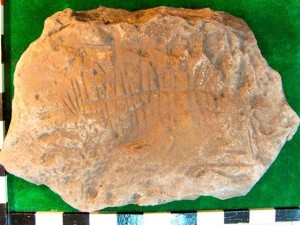
“A carved stone found marking a Bronze Age grave in the Ukraine is the oldest sundial of its kind ever found, a new study reveals. The sundial may have marked the final resting place of a young man sacrificed or otherwise marked as a messenger to the gods or ancestors, said study researcher Larisa Vodolazhskaya […]

“A comet that struck Earth around 28 million years ago annihilated part of modern-day Egypt — but managed to leave behind a few relics for modern scientists to marvel over. According to a team of South African researchers, a small pebble discovered by an Egyptian geologist in 1996 has been identified as having come from […]
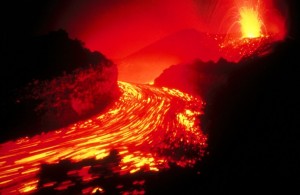
“Study leader Ashton Flinders from the University of Rhode Island and his colleagues have determined that it is the eruptions of lava on the surface, extrusion, which grow Hawaiian volcanoes, rather than internal emplacement of magma, as was previously thought. Before this study, most scientists thought that Hawaiian volcanoes grew primarily internally – by magma […]
Archaeology, Cosmology, Earth Sciences
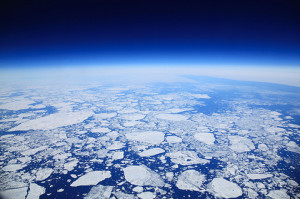
“(Phys.org) —”Rapid” and “instantaneous” are words geologists don’t use very often. But Rutgers geologists use these exact terms to describe a climate shift that occurred 55 million years ago. In a new paper in the Proceedings of the National Academy of Sciences, Morgan Schaller and James Wright contend that following a doubling in carbon dioxide levels, the surface […]
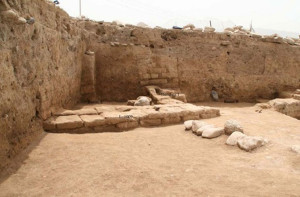
“In the Kurdistan region of northern Iraq archaeologists have discovered an ancient city called Idu, hidden beneath a mound. Cuneiform inscriptions and works of art reveal the palaces that flourished in the city throughout its history thousands of years ago. Located in a valley on the northern bank of the lower Zab River, the city’s […]
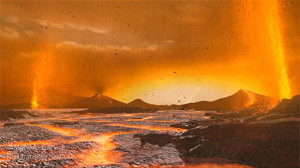
“You’ve heard the story before: if it weren’t for our friends the photosynthetic cyanobacteria, you wouldn’t be able to read this out loud because there would be no oxygen to breathe—and also you would never have existed. Oxygen-producing photosynthesis changed Earth’s atmosphere and paved the way for multicellular life, which would run around eating the […]
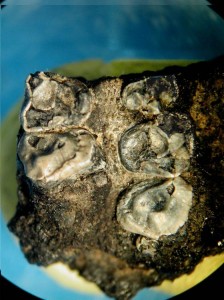
“The fossilized jaw of a pint-size primate that lived about 35 million years ago in Asia has been unearthed in Thai coal mines. The new species, dubbed Krabia minuta, after the Krabi coal mines where it was found, was an ancient, extinct member of a group of primates called anthropoids, which includes the ancestors to […]